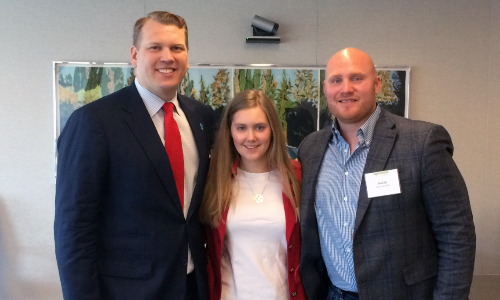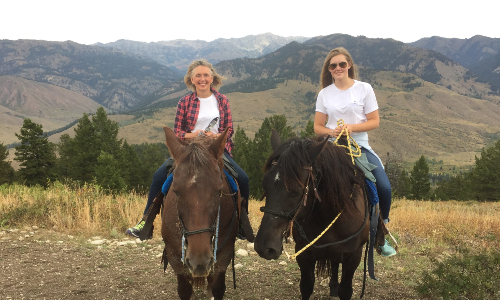Esther Lovett's PCS Blog
Adapting to daily life with Post-Concussion Syndrome
Posted: February 7, 2017
By Esther Lovett
I wake up most days with a headache. Sometimes a cup of tea does it, but other times I need two Motrin and twenty minutes more sleep. Sometimes I need two hours and miss classes. At school, I put a strong face on. I smile, I engage in class, I work hard, and I get good grades. However, sitting in class I often find the board blurring in front of me and I have to work so hard to keep all of the writing as just one of itself. The teacher’s voice often goes in and out as I struggle to focus with a splitting headache.
During free periods, I spend all of my time doing homework because it just takes me longer to do everything. I have to carefully plan how I study. Prior to the injury, I had an excellent memory which was advantageous for school. After, I struggled with my memory and other symptoms. I could no longer just quickly review work the night before, so I began to have to plan more before any assessment, carefully making study guides, and using mnemonic devices to master vocabulary. I could no longer sit for four hours straight and complete all of my assignments. I had to set a timer for thirty minutes, get up, stretch, do some jumping jacks, drink water, and then return back to work. I still quickly understand material, and my performance and output are as strong as they were pre-concussion - I just have to work differently. Initially it was frustrating to have to drastically alter the way that I studied, but I have made it work.

I had to totally change the way that I exercise as well. Rather than playing team sports, running, and doing workouts specific to my sports, I found myself having to work out just to work out. No longer able to run, I had to switch to Pilates, yoga, and light weights, always careful not to hurt my neck or back more.
It is hard to have to change so many routine things that you never imagined would have to change. Once a stress reliever and something I enjoyed, running even for just a few minutes leaves me extremely dizzy and nauseated with a blood-pounding headache.
When I’ve thrown up at school because of a headache, I had to just continue my day because I hate complaining and I didn’t want to miss school.
With a bad headache I often become very sensitive to smell. I feel bad when I turn down a meal that is usually one of my favorites and have to go to a dark room instead of eating with my family.
I sometimes get really irritable. I was a very calm and ‘go with the flow’ person, and now, sometimes the littlest things just really annoy me.
My confidence has taken a toll. When you no longer feel like yourself and struggle to remember things, you don’t feel very confident about schoolwork. I was always a strong student and now I tentatively submit my answers to online quizzes. Though I still receive good grades, they come with more work and stress.
I used to have 20/10 vision in both eyes and my eye doctor told me that I should be an aviator with such crisp vision. Now, I squint to read and my vision blurs or doubles - I don’t think I’ll be piloting any time soon.

I used to put my hair in a ponytail almost every day. Now, ponytails worsen my headache so even when working out, I have to leave my hair down or in a braid.
I sometimes wear sunglasses inside my house while doing work since sunlight and glare make me headachy. I wear sunglasses almost all of the time when I’m outside.
I randomly lose my balance and get dizzy. I guess I’m glad that I can make people laugh as I topple over or near-miss a wall, but it is disconcerting to walk around when everything is blurry or have a conversation when the person is blurry and double.
I always considered myself a quick wit, and now I laugh with a considerable delay or think of a great addition to a conversation that happened five minutes ago.
All of these things show how pervasive Post-Concussion Syndrome (PCS) is. It’s not just your sport or just your academics. It’s your whole life and each little loss and change adds up.